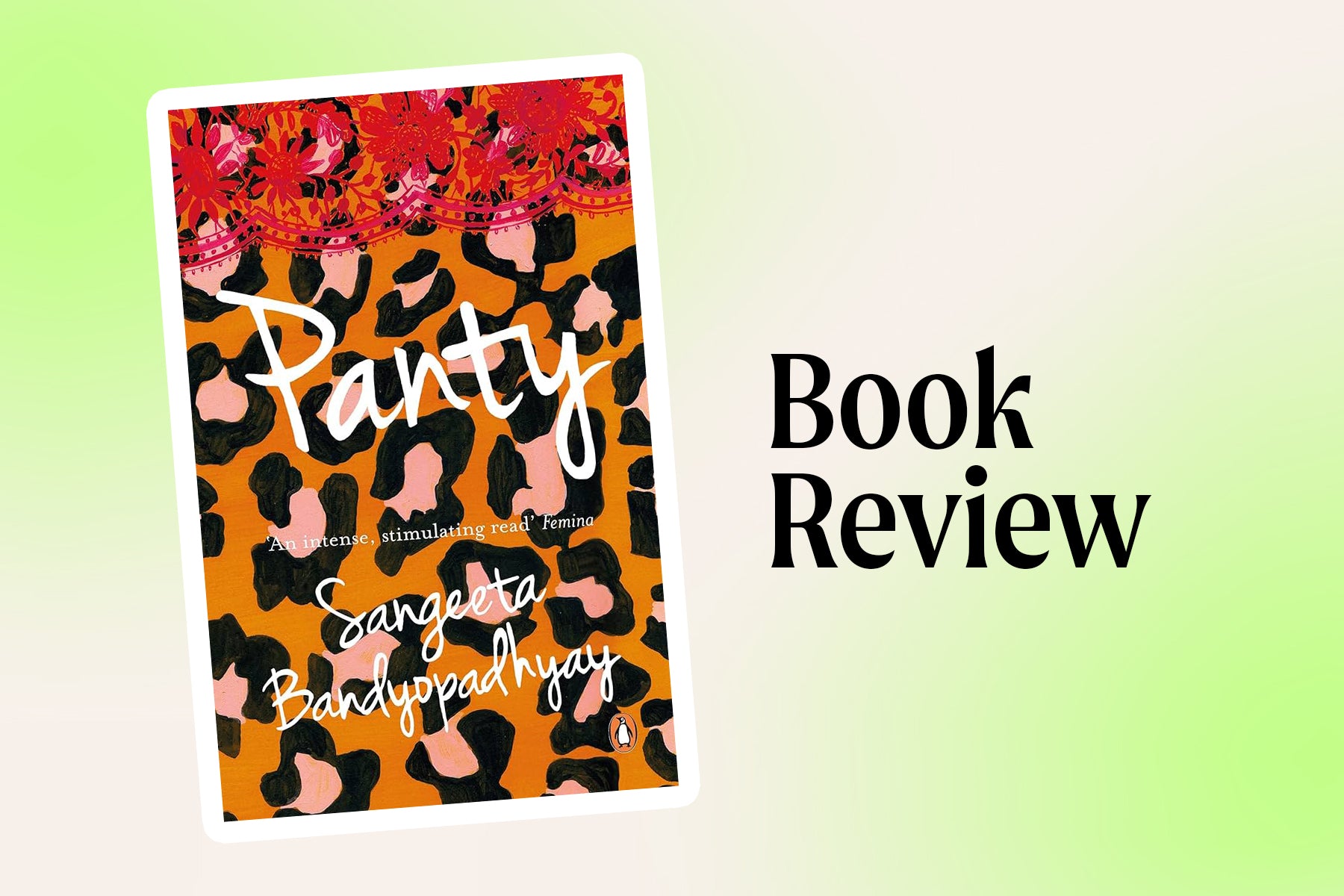Your cart is currently empty

"Panty" by Sangeeta Bandyopadhyay isn’t just a novel—it’s a fever dream wrapped in the sheer fabric of desire, shame, and self-discovery. Originally written in Bengali and now available in a no-holds-barred English translation by Arunava Sinha, this novel takes you on a wild ride through the labyrinth of a woman’s psyche, exploring the boundaries of her sexuality, identity, and freedom. It's as if Bandyopadhyay has invited us into a secret room where every emotion is raw, every thought is naked, and every fear is laid bare.

The plot deets
The novella consists of two separate magical-realist stories called Hypnosis and Panty. In Hypnosis, the protagonist Ilona is a 30-something woman living a comfortable although restless life. She meets a famous music composer, Meghdoot, and has a surreal, unsettling relationship with him. In Panty, the longer of the two stories, an unnamed protagonist arrives in Kolkata, fleeing from a failed relationship and seeking solace in the anonymity of the city. She checks into an apartment lent to her by a friend, and here, she stumbles upon a leopard print panty with a suggestive white stain on it, an intimate remnant left behind by the previous occupant. This seemingly irrelevant discovery spirals into a visceral experience where the panty becomes a symbol of everything she’s trying to escape—her past, her desires, and the haunting questions about who she really is.
Bandyopadhyay’s narrative oscillates between the real and the surreal, blurring the lines between the protagonist’s present, her memories, and her fantasies. The city of Kolkata, with its bustling streets and suffocating heat, serves as a fitting backdrop to this intense internal journey. The protagonist’s interactions with the panty trigger a series of flashbacks and sexual fantasies that challenge the conventional notions of womanhood, autonomy, and shame.
What REALLY Works 
"Panty" is a delight in how it captures the female experience in all its messy, complicated, and glorious reality. The book refuses to cater to the male gaze or the sanitised versions of femininity we’re often spoon-fed. After all, one would expect that finding an abandoned panty with a white stain on it will elicit at least a little repulsion, but what happens instead is that the unnamed heroine begins discovering parts of herself she didn’t know existed. The novella revels in the discomfort, the contradictions, and the raw sensuality of being a woman without trying to make it palatable or pandering. The protagonist’s unnamed status is symbolic of the universal struggles women face—constantly being labelled, defined, and boxed in by societal expectations.
Bandyopadhyay’s prose, translated with great sensitivity by Arunava Sinha, is another high point. It’s lush, lyrical, and yet, brutally honest. The descriptions are vivid and unapologetic, making the reader feel every pulse of desire, every pang of guilt, and every flutter of confusion that the protagonist experiences. The translation does justice to the original, retaining the intensity and urgency of the narrative while making it accessible to a global audience. Some of my favourite lines are when her period starts and she has no other underwear except the soiled panty she found, which sets off the internal journey of discovering the stranger who left them behind, as well as herself: “What I did not know was that I had actually stepped into a woman. I slipped into her womanhood. Her sexuality, her love. I slipped into her desire, her sinful adultery, her humiliation and sorrow, her shame and loathing.”
The novel’s exploration of sexuality is particularly striking. Bandyopadhyay doesn’t shy away from portraying the protagonist’s sexual fantasies and encounters in graphic detail, but these scenes are far from gratuitous. This excerpt from a particularly surreal, second-person pov towards the end might give you a better idea of what this book has to offer: “She felt tears welling up again, and allowed them to fall one by one into the lips of your penis, like individual strands of pubic hair. And she began to torment it. It trembled, made you tremble too, and an introspective, penetrating stream spurted from it. Which she had never observed as closely as she did now. Never looked at, never touched, never sniffed, never tasted. Her consciousness accepted this liquid. She drank the sperm.”
What COULD Have Been Better
While "Panty" is undeniably a bold and thought-provoking read, it’s not without its challenges. The novel’s stream-of-consciousness style and the frequent shifts between reality and fantasy can be disorienting at times. Readers who prefer a more linear narrative may find themselves struggling to keep up with the protagonist’s turbulent inner world. However, this disorientation is perhaps intentional, reflecting the protagonist’s own fractured sense of self.
Moreover, the novel’s brevity can be both a strength and a weakness. At just over 100 pages, "Panty" is a quick read, but it leaves you craving more—more context, more backstory, more resolution. The ending, (which I won’t spoil, don’t worry) in particular, feels abrupt and leaves many questions unanswered. But then again, maybe that’s the point. Maybe Bandyopadhyay wants us to sit with that discomfort, to confront the fact that life, like the protagonist’s journey, doesn’t always tie up neatly with a bow.
So, to recap…
"Panty" is not a book for the faint of heart. It’s a daring, provocative, and deeply feminist work that challenges the reader to look beyond the surface and engage with the complexities of female identity and sexuality. Sangeeta Bandyopadhyay has crafted a narrative that is as haunting as it is empowering, as unsettling as it is liberating.
For those who are willing to dive into the murky waters of this novel, "Panty" offers a rich, if unsettling, exploration of what it means to be a woman in a world that constantly seeks to define and confine you. It’s a book that will linger in your mind long after you’ve turned the last page, making you question your own relationship with shame, desire, and freedom.











